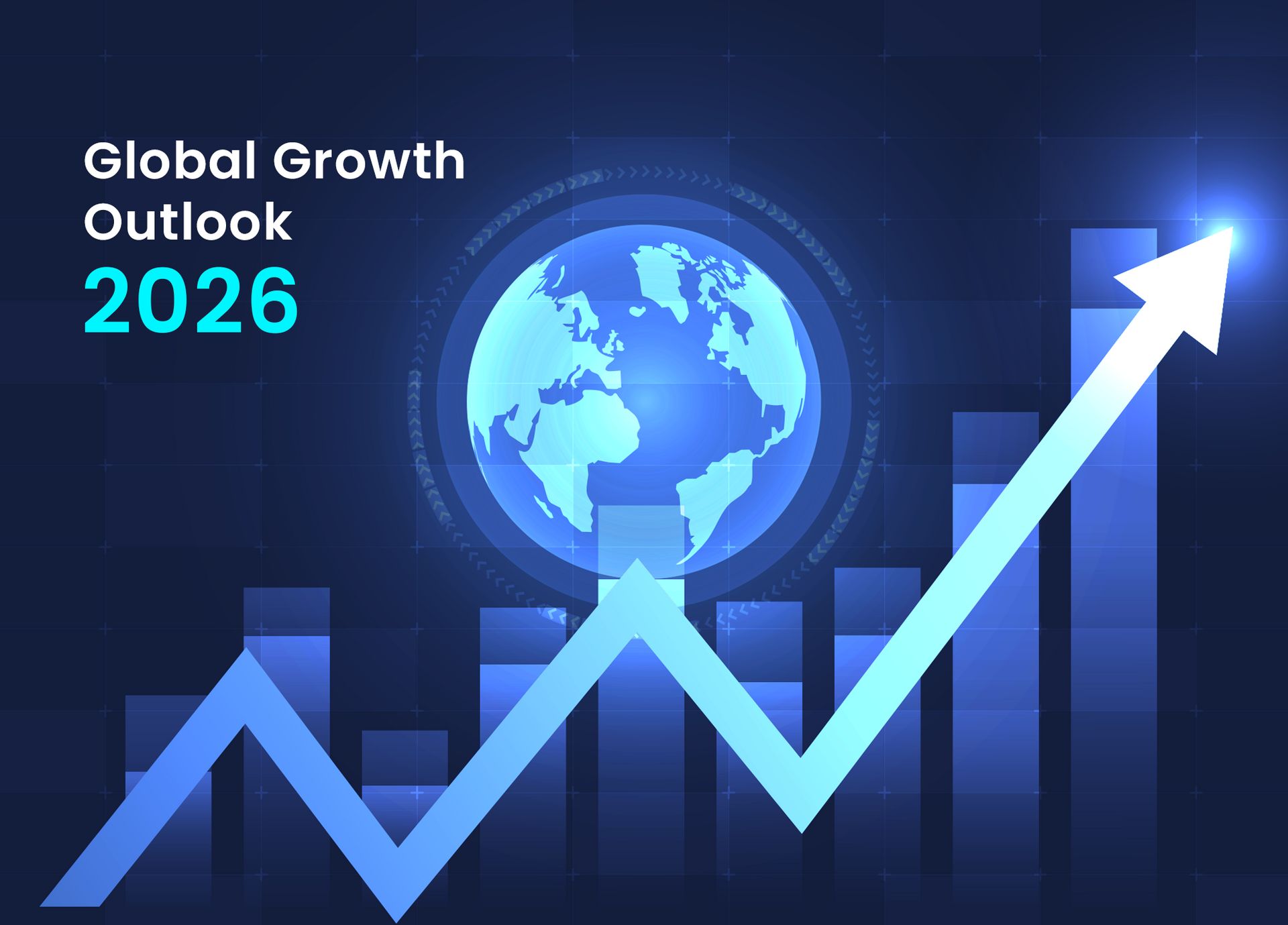- JANUS SIGNAL
- Posts
- Resilient Startups: Navigating Economic Downturns
Resilient Startups: Navigating Economic Downturns
How founders turn recessions into opportunities for growth, innovation, and long-term stability
JANUS SIGNAL
Welcome to this week's Signal.
We’re focusing on resilient startups: companies that don’t just survive economic contractions, but adapt, pivot, and thrive despite uncertainty. From operational strategies to investor relations and team culture, founders are turning constraints into catalysts for innovation.
Spotlight Theme
Thriving Under Pressure: How Startups Weather Economic Storms
When markets tighten and capital becomes scarcer, the true test for startups isn’t just survival. It’s transformation.
Main Story:
Economic downturns don’t simply slow growth. For many entrepreneurial teams, they trigger a strategic gut-check. In the global startup ecosystem, the ventures that withstand turbulence share a common trait: they don’t treat a recession as a burden, they treat it as a calibration opportunity for strategy, operations, and network strength. Consider this data point: in 2022, nearly 1.7 million new U.S. applications were filed that are likely to hire employees. This represents a 27.8% increase compared with pre-pandemic 2019 levels.
That surge suggests that, even in turbulent times, founders are stepping forward and building. At the same time, the Startup Genome 2025 Global Startup Ecosystem Report found a 31% drop in aggregate ecosystem value across the top 40 hubs between 2024 and 2025. This shows that many ecosystems are contracting, but it also means the bar for resilience is higher and clearer.

From these signals, three strategic plays emerge for startups navigating downturns:
Operational Focus & Cost Discipline Resilient founders instinctively trim non-core activities and concentrate on mission-critical offerings.
With capital more expensive and markets less forgiving, they adopt leaner expense structures, negotiate supplier concessions, and prioritize cash-flow visibility. In adversity, discipline becomes a competitive advantage.Revenue Diversification & Business Model Agility Startups that emerge stronger manage to pivot or layer revenue streams while others retrench.
Companies built around a single product or channel often stall when consumer behavior or spending changes. In contrast, those with adaptable models (hybrid SaaS + services, marketplace + vertical integrations) flex into new demand patterns.Network & Talent Anchoring In downturns, relationships matter more than ever. Founders who preserve team cohesion, maintain investor confidence, and engage their community networks gain a trust buffer.
The inverse is also true: when hiring freezes hit, when rounds shrink, or when partners pull back, isolated teams struggle. The data indicate that ecosystem contractions make active network participation a differentiator between survival and stagnation.
Zoom In:
Globally, from North America to Southeast Asia, a consistent pattern appears: during periods of economic stress, startups that entered the market with low cost structures, strong culture, and open ecosystems outperformed peers that scaled aggressively in boom times.
In hubs with strong talent mobility and network support, founders regained momentum faster when credit conditions loosened. The message for immigrant founders is especially clear: cross-border networks, dual-cultural fluency, and adaptability are assets when price pressure and uncertainty dominate.
By the Numbers:
1.7 million new U.S. business applications likely to hire employees in 2022. A 27.8% increase from 2019.
Global startup ecosystem value declined 31% in Top 40 hubs in 2025 compared to prior period.
In 2022, early-stage venture capital positive activity rate was 83%. Down from 88% in 2021.
What stands out:
Noubar Afeyan turns scientific curiosity into a venture-creation engine building biotech companies from first principles.
Real Founder: Noubar Afeyan, Architect of Scientific Venture Creation
Noubar Afeyan, the Lebanese-born Armenian-American founder and CEO of Flagship Pioneering, has become one of the most influential figures in modern biotech venture creation.
His model is unconventional: instead of funding existing startups, Flagship systematically creates new companies from scratch, using scientific exploration as the foundation. In a world where recessions pressure founders to “scale back,” Afeyan’s approach demonstrates how structured innovation can make a venture portfolio more resilient.
What makes him stand out:
As reported by Nasdaq and PR Newswire in July 2024, Flagship Pioneering has launched more than 100 science-based companies tackling human health, sustainability, and advanced technologies. The same report confirms that Flagship has raised approximately $3.6 billion in recent years to fuel its venture-creation engine.
In November 2023, Flagship launched Pioneering Intelligence, an initiative designed to integrate AI into the company-creation process. This move signals Afeyan’s long-term thesis: uncertainty plus computational power equals accelerated discovery.
Why Afeyan matters for our theme (Resilient Startups): Flagship’s model minimizes exposure to economic cycles by creating platform-based companies with multiple application pathways, making them less vulnerable to single-market shocks.
His philosophy, which he calls “entrepreneurial science,” reframes uncertainty not as a threat, but a prerequisite for transformation. This mindset has helped Flagship-born companies navigate swings in capital markets more effectively than traditional venture-backed startups.
Moderna, one of Flagship’s best-known creations, demonstrated the power of Afeyan’s methodology when it scaled globally during the pandemic.
Global impact:
Flagship’s portfolio spans healthtech, climate, agriculture, therapeutics, and synthetic biology. These are fields that remain essential even in recession cycles. Afeyan’s influence reflects a broader truth: founders who design for uncertainty don’t just survive downturns, they often redefine their industries during them.
Tools That Help
Brex Empower - Real-Time Financial Controls for Volatile Markets
Brex Empower gives founders a consolidated view of company spending, burn rate, runway, and team-level budgets with real-time alerts.
In recession periods, when cash discipline becomes a survival advantage, Empower’s dynamic budget rules and automated spend controls help leadership teams prevent cost leaks and preserve runway without slowing operations.
Linear - Strategic Issue Tracking & Velocity Intelligence
Linear provides an opinionated, high-speed workflow system for engineering and product teams. Its velocity analytics, cycle insights, and prioritization tools help founders understand where execution slows down and how to adjust resourcing during downturns.
The 2025 release includes AI-assisted prioritization models trained on historical product-development performance.
Arc Capital Intelligence - Investor & Market Signal Scanner
Arc’s 2025 Capital Intelligence platform aggregates global venture signals, funding flows, dry-powder trends, and sector-level activity in real time.
For founders navigating recessions, when investor behavior changes rapidly, Arc offers visibility into which funds are actively deploying, which sectors show resilience, and how benchmarks shift week-to-week.

Founders’ Radar
Where Global Research Meets Real-World Impact
From December 11 to 12, 2025, New York will host the 19th International Conference on Economy, Management, and Marketing (ICEMM 2025).
This is your chance to dive deep into the latest research, engage with thought leaders from around the world, and connect with a global network of academics, practitioners, and innovators.
Over two immersive days, attendees can:
Present original research or e-posters and receive feedback from expert peers.
Participate in high-level discussions on topics ranging from sustainable business practices and AI-powered supply chain systems to financial risk management and inclusive public policy.
Gain visibility through the conference’s peer-reviewed proceedings, indexed in Google Scholar, Semantic Scholar, Open Science Index, and other leading databases.
Be considered for special journal issues, giving your work international recognition and publication opportunities.
Whether you’re a researcher, industry professional, or student, ICEMM 2025 offers a rare blend of scholarly rigor and real-world applicability.
ICYMI (In Case You Missed It)
Plug and Play China 2025: JANUS Startups Took the Stage
This season, JANUS secured a dedicated opportunity for its startups to participate in Plug and Play China, giving founders direct access to one of the most influential innovation platforms operating today.
Highlights:
Product showcases and firsthand feedback
New founder-to-founder and industry connections
Increased visibility across the innovation community
Plug and Play continues to be a powerful setting for founders to sharpen their narrative, expand relationships, and position themselves for future opportunities.
Faisal Mushtaq on Innovation, Investing, and the Future of Tech Ecosystems
Few people embody the spirit of cross-domain leadership and innovation as seamlessly as Faisal Mushtaq, an executive, entrepreneur, investor, author, and ecosystem builder whose career spans global corporations and successful startups alike. In a recent conversation on JANUS SIGNAL, Mushtaq shared his insights on the intersection of technology, investment, and early-stage entrepreneurship.
“I’ve been fortunate to spend half my life leading teams in large public and private companies, and the other half in startups,” Faisal began. His leadership journey includes senior roles at Cisco Systems, Hitachi, and, most recently, as CTO of Sleep Number Corporation, a $2 billion smart bed manufacturer in Minnesota.
At Sleep Number, he spearheaded product research and development, integrating wellness and technology. His team’s innovations include work published in the Journal of Medical Internet Research on detecting COVID-19 through sleep patterns. Parallel to his corporate career, he has contributed to three startups, all of which were successfully acquired. “In one early venture, it was just three or four of us in a room with big ambitions, working 80+ hours a week,” he recalled.
For over seven years, Faisal has been an active angel investor, participating in funds such as NuFund Venture Group, Interlock Capital, and MVP Ventures. “Early-stage investing is not just about capital,” he explained. “It’s about enabling ideas that can change the world.” Faisal is also a published author and blogger, maintaining a Substack focused on leadership, innovation, AI, and technology. “But what I’m most proud of,” he added, “is being an innovation ecosystem builder.”
Technology as an Enabler and Healthcare as the Next Frontier
When asked about his focus on healthcare and wellness technologies, Faisal’s perspective was both practical and visionary. “Every technology, software, hardware, AI, serves as an enabler to solve a real problem. The key question is, what problem needs solving and who will pay for it?”
At Sleep Number, this philosophy materialized in data-driven wellness innovation. “We spend a third of our lives sleeping, yet most people don’t understand what happens during that time. Modernizing something as fundamental as sleep revealed the power of applying technology to human health,” he said. He highlighted that AI and automation can reduce inefficiencies in healthcare, giving providers more time to focus on patients. “Step by step, technology can make healthcare more accessible and affordable.”
Inside the Angel Investor Mindset
For early-stage founders seeking funding, Faisal emphasized understanding the lifecycle of startup financing, from bootstrapping and friends-and-family rounds to incubators like JANUS, and finally angel or institutional investment.
When evaluating startups, he looks for answers to three essential questions:
● Why me? Is this team the right one to solve the problem?
● Why now? Is this the right time to bring this solution to market?
● Why this? Is this the right problem to solve?
“Startups are like climbing a mountain,” he explained. “You’ll fall, you’ll get hurt, but will you get back up and keep going? That’s what defines a strong team.” He underscored the importance of complementary co-founders and early traction before approaching investors. “Progress matters. If a founder has gained customers or strengthened the team over months, that persistence stands out. Lack of progress is a red flag.”

Building Relationships Before You Need Them
Faisal stressed that founder-investor relationships should begin well before funding is needed. “Start by connecting, not asking. Keep investors updated regularly. You build trust before you need it; then doors are already open when help is required.”
Creating Spaces for Innovation: TechCon Global and SoCal
Faisal’s ecosystem-building passion manifests in TechCon Global, which he founded five years ago to democratize thought leadership and connect innovators worldwide. Its flagship event, TechCon SoCal 2026, will be held in San Diego on May 22–23. The conference features a pitch competition where, last year, over 350 startups applied for seven finalist spots.
“Even if you’re not from San Diego, it’s a valuable platform,” Faisal said. “Quarterfinals are held virtually, and the finals bring together early-stage investors, corporate leaders, and startups from across the country.” For startups not ready to pitch, TechCon offers exhibitor booths and networking opportunities. “It’s not just about raising money. You might find customers, partners, or mentors who transform your company trajectory,” he added.
He also highlighted the irreplaceable value of in-person connection. “Virtual tools are powerful, but nothing replaces a handshake. A five-minute conversation at an event can become a lasting relationship.”
A Closing Thought
Faisal Mushtaq’s career embodies innovation, leadership, and human connection. His message to founders is clear: “Build relationships early, stay persistent, and focus on impact. Technology is just a tool; what matters is the problem you choose to solve.”
Reality Check:
Global Growth Outlook for 2026

As we look ahead, trusted economic forecasts signal a cautiously optimistic landscape for startups and investors. The International Monetary Fund predicts global economic growth of 3.1% in 2026, while the OECD projects a slightly lower 2.9%.
For startups, this means opportunities remain, but careful planning is essential.
Funding may be available, but founders should anticipate tighter scrutiny from investors and continue validating market fit before scaling. Efficiency, strategic partnerships, and clear value propositions will be key differentiators in a global economy entering 2026.
What We’re Tracking:
Where emerging tech signals the near future of product, infrastructure, and discovery
Autonomous AI Agents
Startups increasingly experiment with AI agents that can perform multi-step tasks on their own, from scheduling to data analysis.
AI-Optimized Infrastructure & Specialized Chips
The push for AI-ready infrastructure is driving custom processors and high-performance chips. McKinsey reports: “Innovations in semiconductors have spiked as companies adopt large AI models requiring enormous compute power.”
Quantum Technologies
Quantum computing, communication, and sensing are advancing rapidly. McKinsey estimates these technologies could generate up to $97 billion in revenue by 2035.
Crack This!
Answer to the last riddle: MVP
Did you guess it right?

I bend when markets scream for a different course,
I trade perfect plans for a fast, honest test.
I change the map but keep the core promise true,
I save a venture when the old path fails the rest.
What am I?